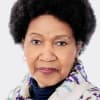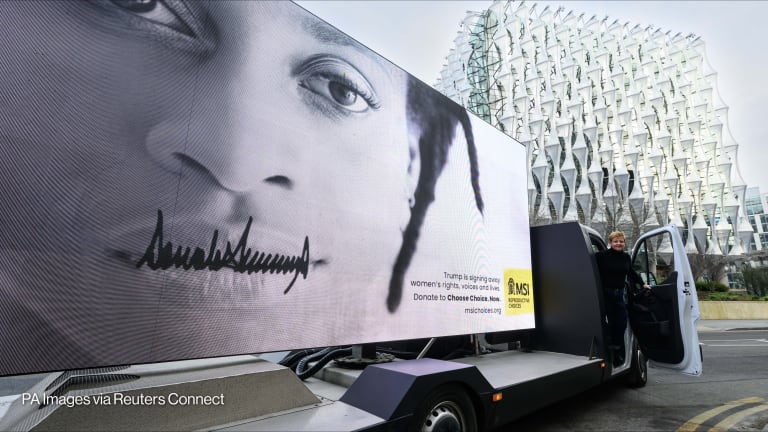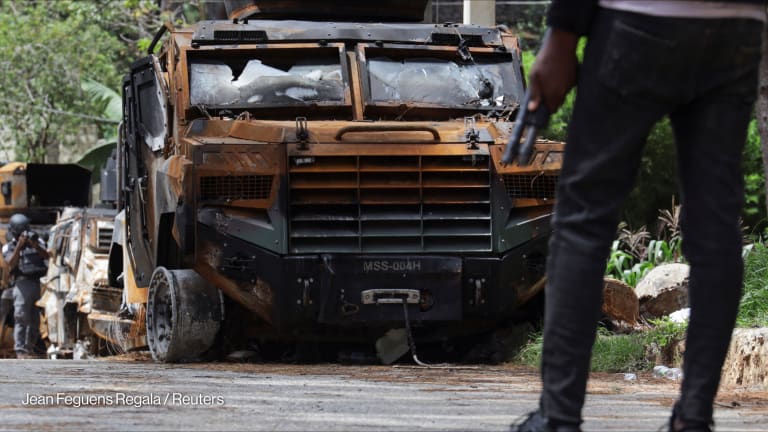
In February, I visited South Sudan and was greeted at the airport by partners — nearly 100 women wearing T-shirts that said “South Sudan Women for Peace.”
During my visit, a young woman told me, “All we ask for is peace so that we can go back to our lives. We want our children to go home, to school and to get nutritious food and proper health services.”
The situation in the world’s newest nation has worsened since conflict erupted in December 2013. I spoke to women who had left their homes and belongings behind and are struggling to care for their children. They told me about their suffering, the violence they had endured, the children and husbands they had lost or been separated from. They told me about the lack of food, water and medication and the lack of safe spaces for them and their children to receive some form of education.
In March, I briefed the U.N. Security Council on the situation and reported what I had seen and what the women told me. I told council members that despite hardship, the women’s resilience and overwhelming desire for peace are striking.
The women have mobilized across divisions and built inclusive coalitions. They are demanding a voice in the decisions being made to resolve the crisis, and also to build their country.
While in South Sudan, I met with the Intergovernmental Authority on Development to discuss the representation of women in the peace talks that recently began in Ethiopia. Thanks to advocacy and the South Sudan Women for Peace, both parties to the conflict included women in their negotiating teams.
Like women in other countries affected by conflict, the women of South Sudan embody the spirit of landmark Security Council resolution 1325, adopted in 2000. The resolution broke new ground by calling for women’s full participation in peace talks and peacebuilding, the protection of women’s human rights, and access to justice and services to eliminate discrimination.
Since the resolution was adopted, the women, peace and security agenda has been strengthened with six subsequent Security Council resolutions and additional commitments. It is now widely recognized that women and girls are disproportionately affected by conflict and that peace agreements and national institutions that include women are more durable and democratic.
This year and next year provide the international community with unique opportunities to make greater progress for women’s rights, women’s empowerment and gender equality. The three key events in 2015 are the 20th anniversary of the Beijing Women’s Conference and the review of the Beijing Platform for Action, the agreement by U.N. member states on a post-2015 international development agenda, and the 15-year review of Security Council resolution 1325.
The road forward was paved last month at the 58th session of the Commission on the Status of Women, where a strong agreement was reached. The agreed conclusions call for action to accelerate progress on the Millennium Development Goals and lay a strong foundation for the post-2015 development agenda with several notable advances.
The agreement recognizes the importance of taking action in five broad areas:
1. Women and girls must be able to fully enjoy all human rights as part of the gender equality and women's empowerment paradigm for development.
2. The enabling environment needs to be strengthened for gender equality and women’s empowerment, including the global macroeconomic framework.
3. Investment in gender equality must be maximized.
4. The evidence base needs to be expanded.
5. The participation and leadership of women at all levels is essential, as is the accountability of all stakeholders.
The agreed conclusions highlight issues that the MDGs did not address, and stress the importance of tracking the basis of discrimination, social norms and stereotypes and entrenched structural inequalities. The commission outlined critical issues that need to be addressed in a new post-2015 agenda, including:
• Violence against women and girls.
• Continued gender pay gaps.
• Women’s disproportionate share of unpaid care work, women’s lack of access to assets and productive resources.
• Lack of sexual and reproductive health and reproductive rights.
• Low levels of women in decision-making.
• The persistence of discriminatory attitudes, norms and legal frameworks that impede progress.
The commission also called for a transformative and comprehensive standalone goal on gender equality, women’s empowerment and the human rights of women and girls, and for gender equality to be mainstreamed throughout all other goals.
As the head of U.N. Women, I am working to make sure that women’s rights, gender equality and the empowerment of women and girls are at the heart of all development, humanitarian and peace and security efforts. In this effort, I am promoting the SHE imperative.
S stands for safety and security from violence.
H stands for human rights.
E stands for empowerment and equality.
We cannot solve the major problems facing our world today — poverty, inequality, conflict, or climate change — without the full and equal participation of women. We also need men and boys, and this is why U.N. Women launched the He for She campaign so men and boys can stand up for women’s rights and equality.
Across the world, as in South Sudan, women and girls are demonstrating resilience, entrepreneurial spirit and leadership. Our task, as the international community, is to tear down the barriers that prevent women and girls from full participation. Because equality for women is progress for all!
Want to learn more? Check out She Builds and tweet us using #SheBuilds.
She Builds is a month-long conversation hosted by Devex in partnership with Chemonics, Creative Associates, JBS International as well as the Millennium Challenge Corp., United Nations Office for Project Services and U.K. Department for International Development.








